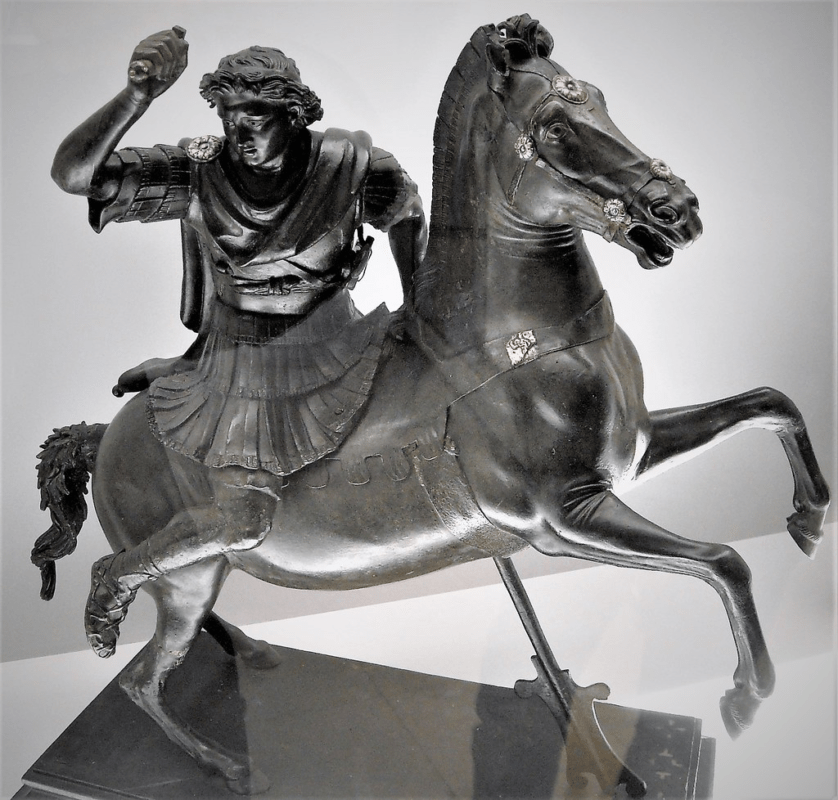The export of ancient coins and antiquities is governed by various European export laws. Some countries permit legal export under strict regulations, while others enforce complete bans to protect their cultural heritage. This article explores the European export laws for ancient coins in several key countries, both those that permit and those that prohibit the export of ancient artifacts. However, this list is not exhaustive, as other countries have significant regulations affecting the trade and preservation of cultural heritage.
Countries That Allow Legal Export of Ancient Coins and Antiquities
Several European countries permit the legal export of ancient coins and antiquities under strict regulations. These countries include:
- United Kingdom
- Germany
- France
- Spain
United Kingdom
Export Process:
The UK’s Department for Digital, Culture, Media, and Sport regulates exports of ancient coins. Exporters must obtain a license, especially for items over 50 years old or above a specific monetary threshold. This process ensures that the artifact does not hold national significance.
Discovery and Trade:
In the UK, individuals can legally search for artifacts with the landowner’s permission. Reporting discovered items under the Treasure Act is mandatory. Although coins not classified as treasure can be traded freely, an export license remains necessary for international sales.
History of Export Laws:
The UK’s export laws have evolved since the 19th century. The Treasure Act of 1996 marked a significant milestone by ensuring that finds of national importance are offered to museums before being sold. Recently, the government has focused on tightening regulations to prevent the loss of significant Anglo-Saxon and Roman coins.
Types of Coins Exported:
Roman coins and Anglo-Saxon pennies are among the most commonly exported coins from the UK. Legal metal detecting often uncovers these coins.
Germany
Export Process:
Germany requires an export permit for any ancient coin or antiquity. Cultural authorities thoroughly examine each item to determine its significance. They prohibit the export of items deemed to be of national importance.
Discovery and Trade:
In Germany, individuals must report any discovered artifacts. If an item is sold, finders may receive a share of its value. Trading ancient coins remains legal, provided that proper provenance documentation accompanies them.
History of Export Laws:
Germany established its export laws in the late 19th century. Significant revisions followed World War II to prevent cultural heritage loss. Moreover, recent changes have tightened controls over the export of Roman and early Germanic coins.
Types of Coins Exported:
Roman Imperial coins, particularly those minted in German provinces, and early medieval Germanic coins are commonly exported from Germany.
France
Export Process:
France requires an export certificate for ancient coins and antiquities, issued by the Ministry of Culture. The process meticulously ensures that culturally significant items remain in the country. For less significant items, the process is relatively straightforward but still requires thorough documentation.
Discovery and Trade:
French law mandates that all discovered artifacts be reported to authorities. Unauthorized digging is illegal, and all trade in antiquities must occur through licensed dealers with proper documentation.
History of Export Laws:
France codified its export laws in the early 19th century, focusing on preserving the nation’s cultural assets following the Napoleonic era. Over time, these laws have tightened, particularly regarding artifacts from the Roman and Merovingian periods.
Types of Coins Exported:
Roman Gallic coins and Merovingian gold coins are among the types legally exported, often originating from legal sales within established collections.
Spain
Export Process:
Spain’s Ministry of Culture manages export regulations for ancient coins. Exporting these coins requires an export license, granted after a thorough assessment of the artifact’s cultural significance. Coins deemed critical to Spain’s heritage are not permitted for export.
Discovery and Trade:
Artifacts discovered in Spain must be reported. Unauthorized trade is prohibited, and the state claims ownership of all cultural artifacts found within the country. However, licensed dealers can trade ancient coins if they follow all legal procedures.
History of Export Laws:
Spain introduced strict export laws in the mid-20th century to curb the loss of its cultural heritage. These laws have been regularly updated, with recent efforts focusing on preventing the illegal export of coins from the Roman and Visigothic periods.
Types of Coins Exported:
Coins from the Roman Hispania era and Visigothic coins are among those typically exported, especially when they originate from well-documented collections.
Countries Prohibiting the Export of Ancient Coins
Several European countries have strict laws that prohibit the export of ancient coins and antiquities. These countries include:
- Greece
- Italy
- Turkey
- Bulgaria
- Cyprus
Each of these countries enforces laws to protect its rich cultural heritage from looting and illegal trade.
Greece
Historical Context:
Greece, as a cradle of Western civilization, enforces stringent laws to protect its cultural heritage. The government established these laws in the 19th century, soon after Greece gained independence, to prevent the mass export of its antiquities. Moreover, the government tightened the laws further over time to preserve the country’s extensive archaeological wealth.
Current Events:
Greece actively seeks the return of artifacts illegally exported. The country collaborates with international organizations to recover stolen artifacts and prevent further illegal trade. The focus remains on protecting significant items from the Classical and Hellenistic periods.
Italy

Historical Context:
Italy, home to the Roman Empire and a vast array of ancient sites, enforces some of the strictest export laws in Europe. The government implemented these regulations in the early 20th century to prevent the widespread looting and loss of Italy’s cultural heritage. Furthermore, the laws have been continually updated to address modern challenges in cultural preservation.
Current Events:
Italy has led efforts to repatriate stolen artifacts, working closely with other nations and international organizations. The country’s strict enforcement of export laws has significantly reduced the illegal trade of its ancient artifacts, particularly Roman and Etruscan coins.
Turkey
Historical Context:
Turkey, a country with a rich and diverse history, has strict export laws established primarily in the 20th century. These laws were a response to significant looting and illegal excavation that threatened the country’s archaeological sites.
Current Events:
Turkey continues to fight against the illegal export of its cultural heritage. The government actively recovers artifacts illegally exported and collaborates with international bodies to enforce these laws.
Bulgaria
Historical Context:
Bulgaria has a deep historical connection to the Thracians, Romans, and Byzantines. The country established its export laws in the 20th century to combat the looting of its archaeological sites, which became particularly problematic during political upheavals.
Current Events:
Bulgaria has made significant strides in recent years to recover stolen artifacts and prevent further illegal trade. The country works with international law enforcement to protect its cultural heritage.
Cyprus
Historical Context:
Cyprus, with its rich history of Greek, Roman, and Byzantine influences, has stringent laws prohibiting the export of antiquities. The government established these laws primarily in the 20th century to preserve the island’s archaeological heritage, which faced threats from looting and illegal excavation.
Current Events:
Cyprus continues to strengthen its laws and collaborate internationally to recover stolen artifacts. The government remains vigilant in protecting its cultural assets, particularly those from its ancient Greek and Roman periods.
Modern Concerns with Illegal Export and Provenance
The illegal export of ancient coins and antiquities remains a significant concern. Unauthorized excavation and looting of historical sites lead to the loss of invaluable cultural heritage. These activities deprive countries of their history and introduce items of questionable provenance into the market.
Provenance plays a crucial role in the legitimate trade of ancient coins. It ensures that the item has been legally acquired and is not the result of illegal activities. Therefore, collectors should prioritize purchasing coins with well-documented histories to avoid contributing to the illicit trade.
Conclusion
The export of ancient coins and antiquities in Europe is a complex issue. Each country has its own regulations to balance cultural preservation and legal trade. While some countries permit the legal export of these items, others have stringent laws to protect their heritage. Therefore, understanding these laws is essential for collectors and dealers to ensure that their activities are both legal and ethical. By focusing on provenance, the numismatic community can help preserve history for future generations. Purchase at the Luxe Numis Shop for a legal piece of history!

